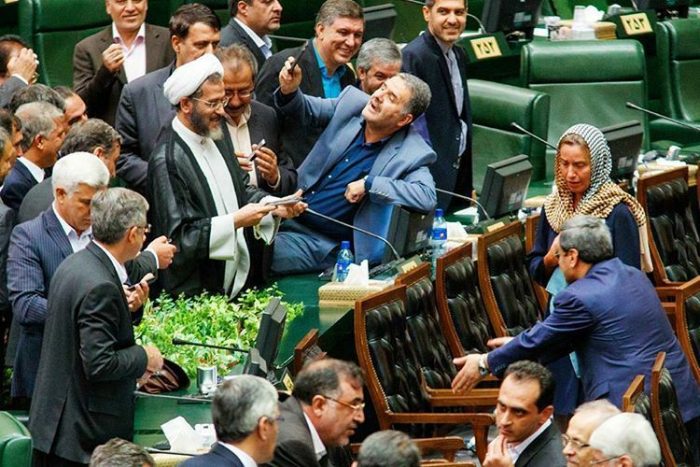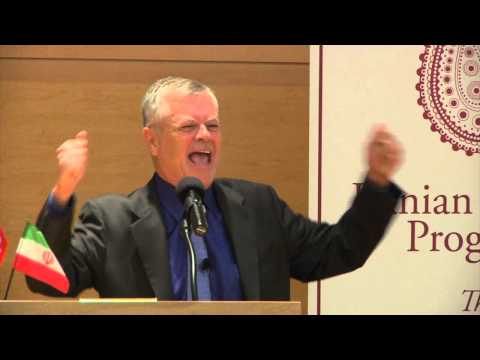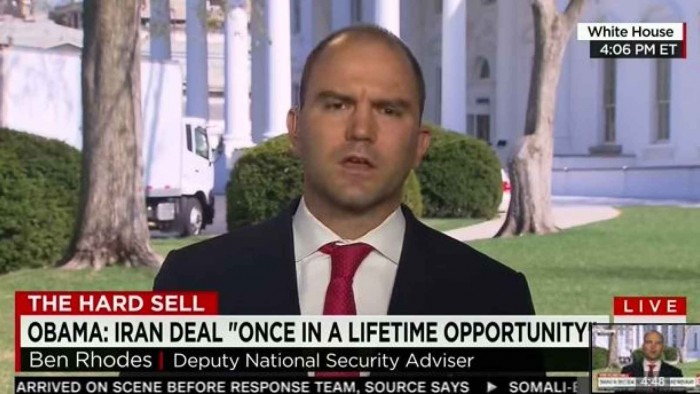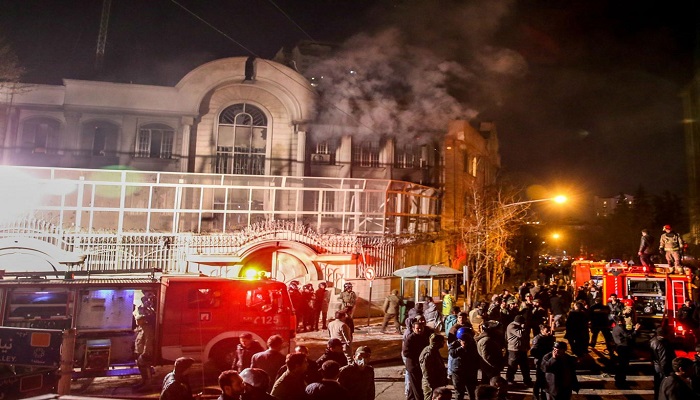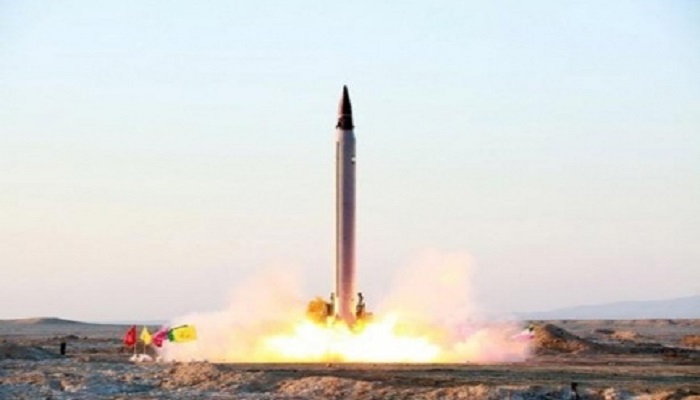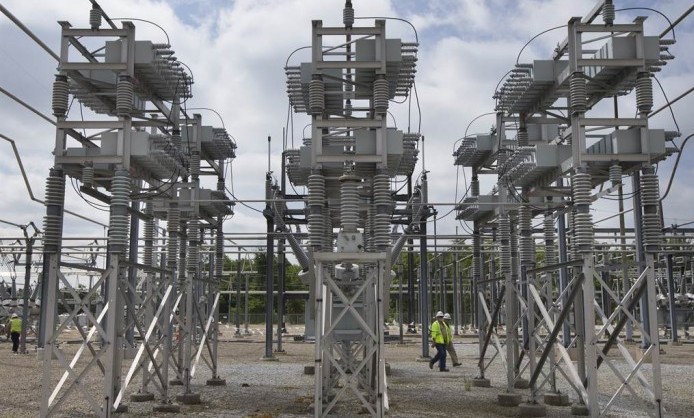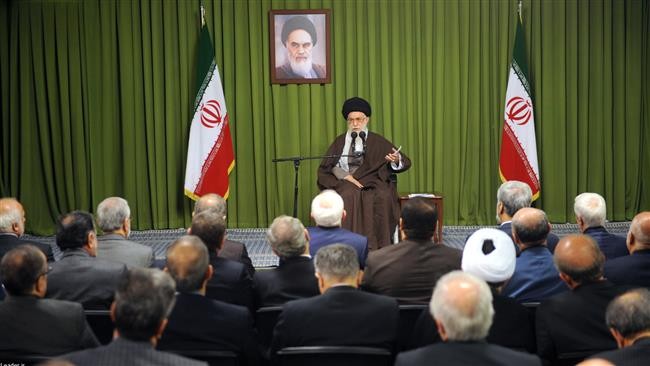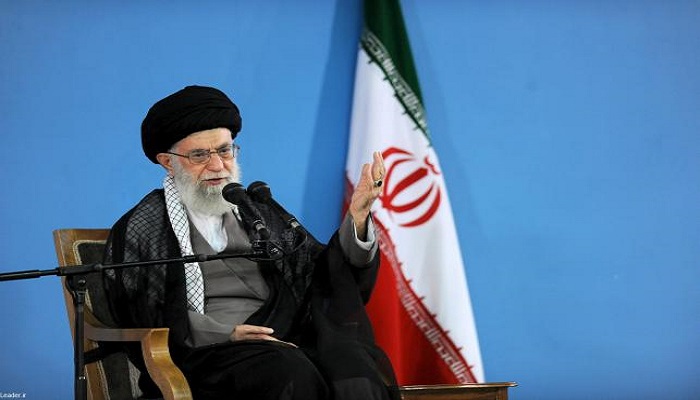Hassan Rouhani must be feeling like he’s stuck in the movie “Groundhog Day” as he was sworn in for a second term as the Iranian regime’s handpicked puppet president of Ali Khamenei and his fellow mullahs.
Four years ago, he was handpicked by his fellow clerics to be the “moderate” face of the regime and push for a lifting of economic sanctions that were crippling Iran through a nuclear agreement with the West.
With the help from the Iran lobby and a misguided Obama administration, he shepherded a deal through that saved him and his fellow mullahs from being tossed out on a wave of broad discontent among the Iranian people.
Now he begins a second term finding himself once again trying to promote a nuclear deal that is in danger of going the way of the dodo bird; only this time he finds a much different world stage he stands on in which the Iranian regime’s true colors have been on vivid display.
He finds President Donald Trump clearly skeptical of the regime’s intentions and efficacy of the nuclear deal.
He finds a U.S. Congress voting overwhelmingly to impose new economic sanctions because of Iran’s ballistic missile program.
He finds a Trump administration moving quickly to impose economic sanctions targeting Revolutionary Guard Corps leaders and companies involved in ballistic missile development.
Most worrisome, he finds a weakened Iran lobby machine that has lost much of its punch and influence with the transition of the Obama administration leaving many regime advocates cut off from the West Wing and cabinet agencies.
Rouhani attempted to offer up some tough-sounding rhetoric, but only ended up reminding watchers of his precarious position within the regime as his own brother was arrested on corruption charges.
“Today is the time for the mother of all negotiations, not the mother of all bombs,” Rouhani said, referring to the US dropping its largest non-nuclear bomb ever used in combat in Afghanistan in April. The Afghan president, Ashraf Ghani, was among those present at Rouhani’s inauguration.
“The US has showed a lack of commitment in its implementation of the nuclear deal because its policymakers are addicted to the illegal and futile policy of sanctions and humiliation,” Rouhani said. “This has proved the US to be an unreliable partner to the world and even to its longtime allies.”
Referring to Trump, he added: “We do not wish to engage with political novices … Those who want to tear up the nuclear deal should know that they will be ripping up their own political life by doing so and the world won’t forget their noncompliance.”
Tehran has complained the US is reneging on its obligations. Iran’s parliamentary speaker, Ali Larijani, said last week that Tehran had formally complained to the joint commission supervising implementation of the accord over the US senate’s new sanctions against Iranian entities, imposed over Tehran’s testing of missiles.
It is a curiously ironic stand for the regime to make since Iran was adamant during negotiations over the nuclear deal two years ago that “side issues” such as the regime’s ballistic missile program, sponsorship of terrorism and human rights abuses should not be part of the agreement.
When the Obama administration caved into those requests and took them out, the stage was unwittingly set for the Trump administration and Congress to act on those same “side issues” separately and apart from the nuclear deal and now the mullahs are crying foul like squealing babies whose milk bottle has been yanked from their mouths by a stern father.
The Iranian regime clearly wants a double standard on its conduct and now that it isn’t getting it, the mullahs cry foul and threaten to pack up and leave like petulant children.
It’s an appropriate metaphor given how Iranian parliament members acted when European Union policy chief Federica Mogherini showed up for the swearing in ceremony and was promptly surrounded by them in a rush of sophomoric selfies.
The scene was roundly criticized in Iranian state media and on social media for the “strange” behavior being exhibited.
The Fars news agency posted a photo which many social media users felt showed Mogherini unimpressed – and labelled the MPs’ behavior “strange”. One MP, Alireza Salimi, called the behavior “self-surrender to the West”, and said that a committee on the conduct of members may probe the incident – if other MPs complain that the selfies caused “contempt” for parliament.
One popular tweet compared the image to a scene from the film “Malena,” where crowds of men rush to light actress Monica Belluci’s cigarette.
Another made the same point using of an iconic image from Walt Disney’s “Snow White and the Seven Dwarves.”
But the irony was not in the rush for selfies, but rather the fact that most Iranians are barred from using social media platforms such as Facebook, Snapchat and Twitter because of their widespread use by political opponents and dissidents.
It is also ironic to see Iranian MPs swarm a female politician when so many Iranian women are brutalized by misogyny laws passed by the same parliament permitting underage child marriages and restricting job opportunities and educational choices for women.
In fact, women are still prohibited from riding bicycles on public streets throughout Iran.
Now that is more compelling irony.
Laura Carnahan
